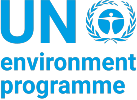 Rampant linear resource use is generating more waste, and more complex waste, which many communities and countries are unable to manage. Consequently, waste is polluting our air, land and water, harming human health and contributing to the global climate crisis.
Rampant linear resource use is generating more waste, and more complex waste, which many communities and countries are unable to manage. Consequently, waste is polluting our air, land and water, harming human health and contributing to the global climate crisis.
Within and among communities, poorly managed waste exacerbates existing inequalities. Globally, some 15 million people earn a fragile livelihood collecting recyclable waste from streets and dumpsites and returning it to the value chain. Ironically, these vulnerable communities are also the least likely to benefit from a waste management service, and the most likely to be living in areas polluted by poorly managed waste.
For these reasons, UNEP is backing the Global Waste Initiative introduced by the COP27 presidency, to reduce waste by 50 per cent by 2050. Greater resource-efficiency delivered through circular economy models can move us much closer to the Sustainable Development Goals. The transition will not be fair by default, and so policymakers, businesses and civil society will need to take great effort to ensure that nobody is left behind.
This report, Towards Zero Waste: a catalyst for delivering the Sustainable Development Goals, sets out how improved resource efficiency and ensuring universal access to waste management services can improve lives across the globe. Its focus is on actions that governments and municipalities in the Global South can take to provide cost-effective and inclusive programmes that will contribute to sustainable development, for the benefit of current and future generations.
The report is available to download HERE
Launch Event
23 November, 2023
As the official launch of the report, a launch event was held online. By inviting Zoë Lenkiewicz (lead author), the event introduced valuable insights from the new report, the global waste pollution crisis, its connections to the achievement of Sustainable Development Goals (SDGs), the importance of an inclusive approach that leaves no one behind, and the various global initiatives that are being put into action. A panel discussion featured speakers from the Gambia, Ecuador, and India, who passionately shared their initiatives that are leading the societies towards zero waste and insights on the challenges and opportunities associated with current waste management practices.
The full recording of the online event is available HERE







